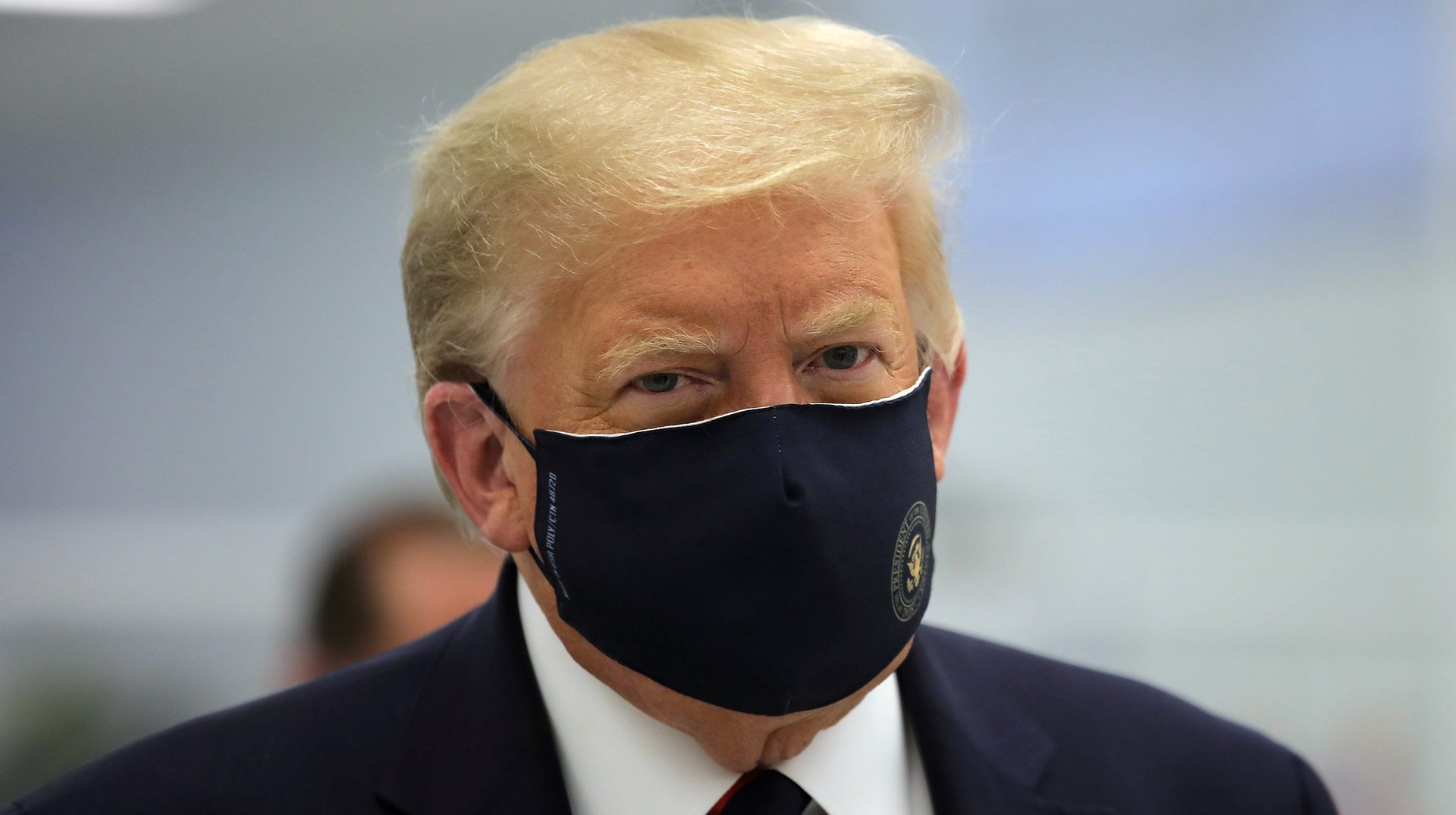Can a US presidential election be postponed?
In the early hours of the morning in Washington DC, US president Donald Trump announced on Twitter that he and his wife Melania tested positive for Covid-19, two days after he debated his opponent, former vice president Joe Biden, in Ohio, and 32 days before the election.


In the early hours of the morning in Washington DC, US president Donald Trump announced on Twitter that he and his wife Melania tested positive for Covid-19, two days after he debated his opponent, former vice president Joe Biden, in Ohio, and 32 days before the election.
This has set off alarm bells in the US capital, where just a few months ago, Trump suggested the election should be postponed until people could “properly, securely, and safely” vote, alluding to his oft-cited erroneous claim that mail-in voting wildly increases the risk of fraud and foreign interference.
Now that the president has tested positive for Covid-19, voters are once again asking: Can an election be postponed? The answer is complicated.
Could Trump delay the election?
The president does not have the power to delay or postpone a presidential election. That power rests with Congress, per Article II of the US constitution, which states that “Congress may determine the Time of chusing [sic] the Electors, and the Day on which they shall give their Votes; which Day shall be the same throughout the United States.” The “time of chusing” was later set by a federal law as the first Tuesday after the first Monday in November, every four years.
However, in 2004, the Congressional Research Service (CRS)(pdf)(p. 9) looked at possible scenarios for election delays in case of a terrorist attack. It concluded that Congress could delegate its power to postpone elections to the president as long as it set out conditions for the election to be held according to its will. Given the current partisan state of the US Congress, that’s unlikely.
Could Congress delay the election?
Yes but it’s not easy. To move the date of the presidential election because of an emergency would require a change in federal law, which must be passed by both houses of Congress. That means the Democrat-controlled House of Representatives and the Republican-controlled Senate would need to agree on a law, pass it before Nov. 3, and president Trump would need to sign it. It could then be challenged in the courts, like any federal law.
Even if that happened, Congress is limited by the constitution in the changes it can make to a presidential election. The 20th amendment states that presidential and vice-presidential terms must end “at noon on the 20th day of January.” So even if the election were delayed, Trump’s term would still end on Jan. 20. And Congress can’t delay an election indefinitely, per the CRS, because the constitution requires that US representatives be chosen every two years and senators every six years.
States have the power to influence presidential elections because they can choose how they appoint members of the electoral college. However, per the US Code, electoral college members must count their votes on “the first Monday after the second Wednesday in December next following their appointment” and the states must send their votes to Congress by the fourth Wednesday in December.
In its 2004 opinion, the CRS said (pdf)(p. 9) that state laws enacted to allow for the postponement of an election in case of emergencies—which exist in at least 45 states—”might be able to be used to postpone the general presidential election in an emergency.” But those states would still have to send their electoral college votes to Congress by Dec. 23, 2020. If there is no winner of the presidential election by Jan. 20, the speaker of the house becomes acting president.
Has the US ever postponed an election?
The US has never postponed a presidential election. Two oft-cited state-level examples are New York state, which rescheduled its 2001 primary because of the 9/11 terrorist attack, and Dade County, Florida, whose 1992 primary was delayed due to Hurricane Andrew.
After 9/11 there was some speculation that George W. Bush might try to postpone the election. At the time, his national security adviser Condoleezza Rice dismissed the rumors on CNN: “We’ve had elections in this country when we were at war, even when we were in civil war. And we should have the elections on time.”